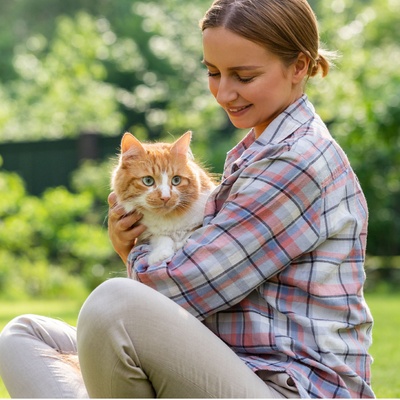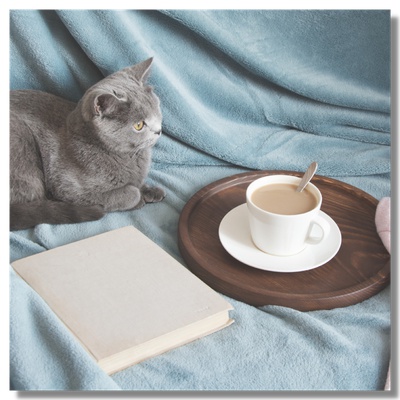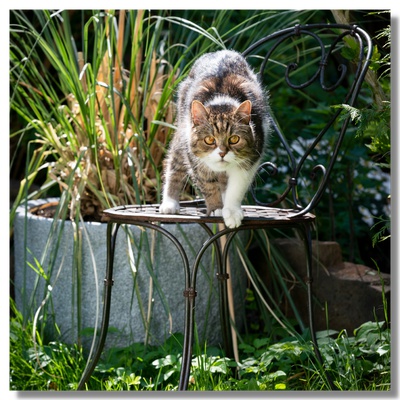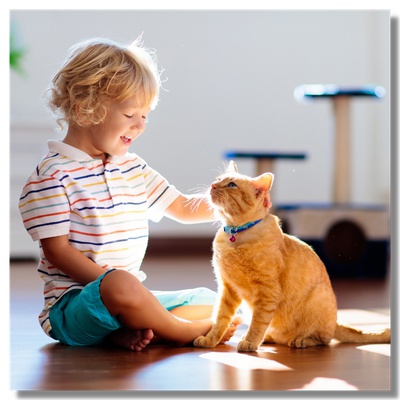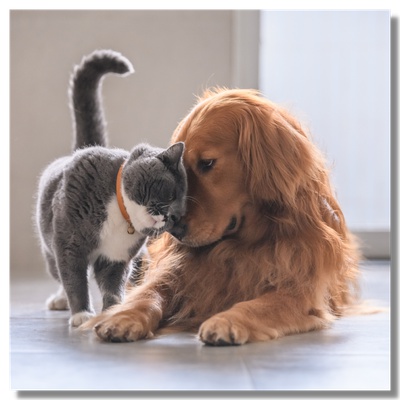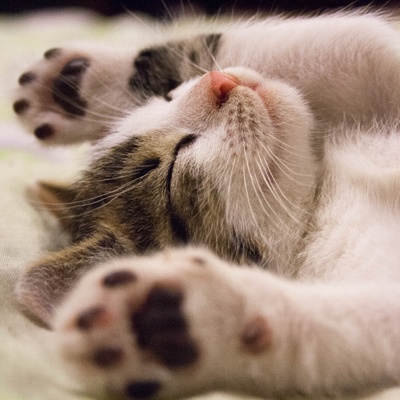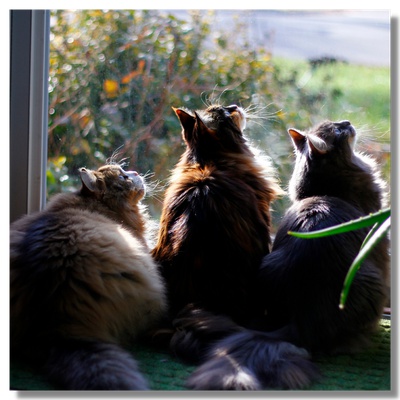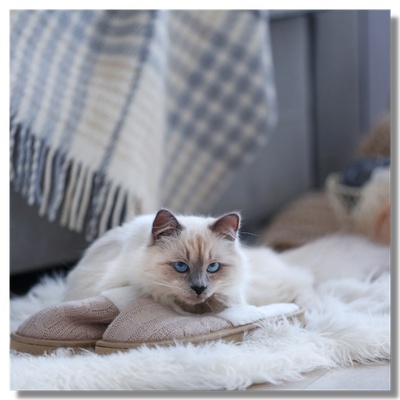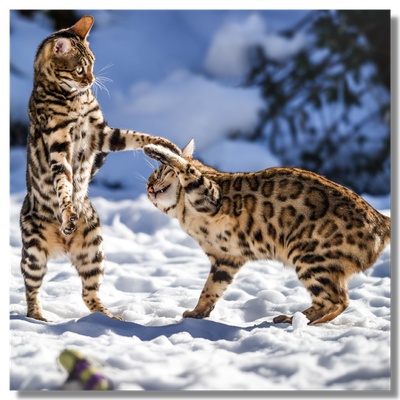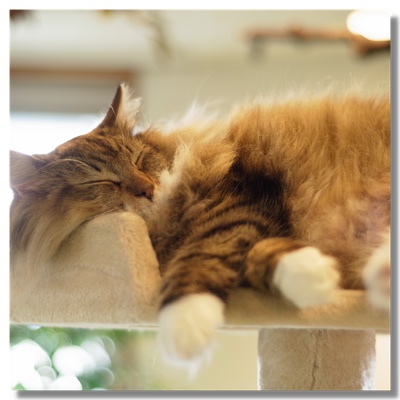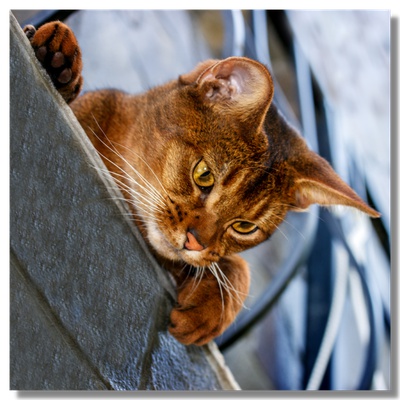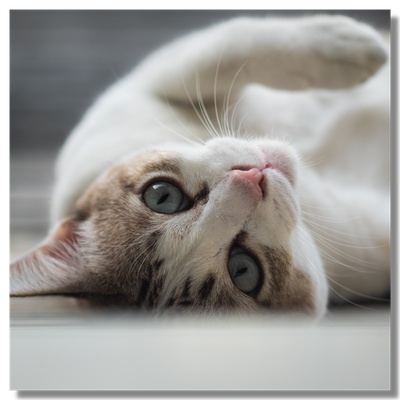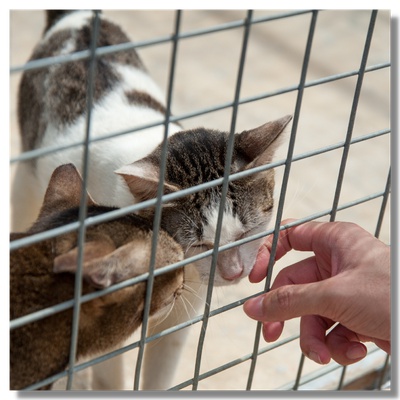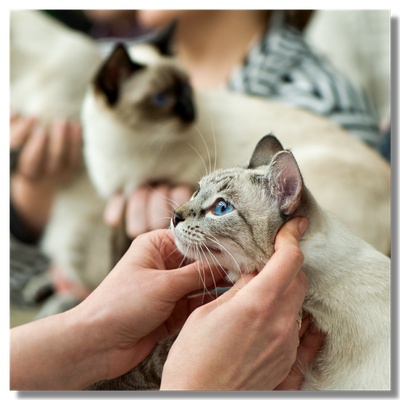Choosing a cat
Choosing the right breed might be a difficult task. In this article, you will find out which factors you should take into consideration when deciding on a cat breed for your needs and lifestyle.
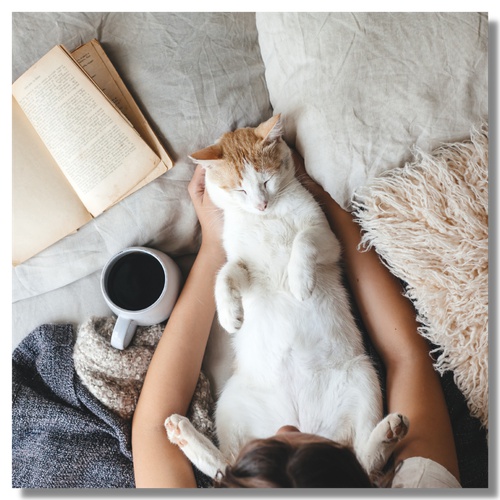
Choosing the right breed might be a difficult task. In this article, you will find out which factors you should take into consideration when deciding on a cat breed for your needs and lifestyle.
This guide was designed to make the process of choosing the right cat breed easier and more reliable for you. Make sure to make an informed decision based on your needs and expectations, as well as the conditions you’ll be able to provide for your future feline companion. You might also want to use our cat breed selector tool in order to easily find your ideal cat.
Before you decide on getting a cat and start searching for the right cat for you, you should realise that becoming a cat owner is a huge responsibility and that your new furry friend can alter your life in many ways. Although owning a cat is much less stressful than owning a dog due to cats’ autonomy in many aspects, it still requires a lot of engagement on your side.
Moreover, you should ask yourself whether you’ll be able to satisfy all the needs of your new cat and provide them a loving, safe and secure environment to live in. This includes such practical factors as the suitability of your flat or house for a cat, or the presence of a garden. You should also think about your lifestyle, as someone will have to take care of your pet when you’re not at home.
Getting a cat should not be a decision made on a whim, because it can considerably change your lifestyle for many years. Once you become a cat owner, you'll be responsible for them, including taking care of their health and training, for example litter box training. A cat can live between 12 and 18 years, so getting one is a huge commitment from your side, and you should be really prepared for it.
We can help you!
Every cat has its own character and specific needs. Making the right choice will ensure his well-being and yours.
Thanks to our quiz, you'll know which breed is right for you, depending on your lifestyle, expectations and many other criteria.
Don't wait any longer and take the quiz to find out the answer!
Click on the title of the chapter you are interested in.
Similarly to choosing a life partner, choosing a cat is an important decision in which you should take into account your way of living. This, along with your expectations, will allow you to decide on a cat breed that is most compatible with you.
When choosing the right cat breed for yourself, you should take into consideration your lifestyle. Before deciding on a particular breed, think about how much time you spend at home and how much space your furry friend will have.
Some more sociable breeds, like the Siamese or the Sphynx, need company and should not be left alone for long stretches of time, whereas others, like the British shorthair or Maine Coon, are much more independent and you wouldn’t have to worry about leaving them at home when going to work.
The size of your household is not insignificant either. Depending on whether you live in a small flat or a spacious house and whether you have a garden that your cat could venture into, some breeds may be more compatible than others. There are cats that adapt very easily to small spaces and would feel comfortable without going outside, while others will feel confined when not allowed to leave your house or apartment.
Breeds like the Bengal or Somali are naturally curious, and an active, outdoor lifestyle would suit them much better than for example the Scottish Fold or the Sphynx, who feel perfectly fine staying indoors.
We believe that pets are true family members, which is why your goal should always be to ensure the best possible connection between your new cat and other family members, especially children and other animals.
When making a decision about which cat breed you’d like to get, you should also think about your family makeup. For many prospective cat owners, it might be really tempting to get a kitten, but you need to be aware that owning a kitten requires much more time and patience than having an adult cat. So, if you have young children, you may want to consider getting an adult, calmer cat that won’t need that much of your supervision, care, and attention.
Moreover, some cats don’t like the presence of children in the household, so it’s crucial that you make sure your kids get along well with the cat before you decide to adopt or buy a new feline friend.
It's not only your children, but also other pets that you should take into consideration. Some breeds are more sociable, they get along with other pets and love having the companionship of another dog or cat, but some would prefer to be an only pet, as they can get aggressive or anxious in presence of other pets.
If you own a big dog that has a strong prey drive, it might not be the best decision to get a new cat. On the other hand, you should make sure that your small pets are safe when introducing a cat into your household.
Choosing a cat that matches your personality and lifestyle will ensure your well-being and his!
Cat breeds don’t only differ in their appearance, but also in their personalities. Of course, each and every cat is different, but it’s important to take into account general breed characteristics.
Different cat breeds have different needs, and they characterise in different personalities. Knowing the characteristics of the cat breed that you’re interested in will allow you to determine whether they’re a good fit for you and your lifestyle.
It comes without saying that each breed differs slightly from another, but, contrary to dog breeds, there are fewer differences in personality between breeds. However, there are some general categories that cat breeds can be classified into.
These breeds tend to be relaxed and easy-going, and they thrive when left home alone and kept indoors. Moreover, due to their friendly and calm personality, they are good with children. However, if it comes to Ragdolls, Ragamuffins and Persians, you need to be mindful of their grooming needs and coat maintenance.
They are known to be very energetic and playful, which is why they require a lot of stimulation, both mental and physical. For this reason, they are not supposed to be left alone for long periods of time. If you’re working long hours, it’s best to either decide on another breed or get two kittens to ensure they always have company. Moreover, Siamese cats tend to be very vocal.
These two breeds enjoy climbing on high spaces, and they feel confined in a small apartment. If you live in a spacious house with a secure garden, owning a Maine Coon or a Norwegian Forest cat can be a perfect choice. However, you need to be aware that due to their long hair, these breeds have a high-maintenance grooming regime, which requires both your time and resources.
Owning one of these breeds is definitely not for you if you’re looking for a calm cat, as they are extremely energetic and social, demanding your attention and stimulation on daily basis. As long as you provide them with enough company and physical activities, they can be kept solely indoors.
Moggies, also known as mixed-breed cats or domestic cats, can be a great choice if you’re not sure which of the purebreds would suit you best. It’s difficult to generalise over the character of moggies, as each cat has a different personality and background, but they generally tend to be affectionate and able to establish a strong bond with the owner.
Some of them may be lap cats that like cuddles, and they may feel comfortable in the presence of other cats or pets in general. As most of them have short hair, they don’t have elaborate grooming needs.
The background plays an extremely important role in the personality of moggies, especially if they’re already adults, so before adopting, make sure to talk with the shelter staff about the character of the cat you chose.
One of the first questions you’ll have to ask yourself when you decide to become a cat owner is whether to adopt a cat from a shelter or buy it from a breeder. Each option has its pros and cons, which we mention in this section.
Contrary to common beliefs, there are many purebred cats, including kittens, in shelters, so even if that’s what you’re looking for, you might want to pay a visit to your local shelter.
You need to have in mind that it’s more common to find an adult cat rather than a kitty there. However, this might be an advantage, as their character will already have been developed and a shelter worker will be able to tell you more about it, thus giving you better chances to have a cat with a personality that you want.
Moreover, you will be giving a loving and caring home to a pet that probably has never had it in their life, but what they undoubtedly deserve. The financial aspect of taking a cat from a shelter might also contribute to your decision, as it’s much cheaper than buying a purebred cat. The suggested adoption fee in ASPCA is $150.
If you feel that you’d like to buy a cat from a breeder, rather than adopt them from a shelter, there are also several factors you should base your decision on. Firstly, it’s extremely important to do exhaustive research and choose a breeder that is trustworthy and recommended.
You can also visit a cat show to find information about breeders in your area. Moreover, stay away from breeders who have bad opinions, and don’t ignore red flags, such as when the breeder doesn’t want you to visit their facility or is selling the cats through a pet store. Most reputable ones will want to meet you to make sure who they're selling their cats to.
Lastly, the money can be a contributing factor, as buying a purebred or pedigree cat may cost you from $500 to even $1000 or more, depending on the breed.
Choosing the perfect cat breed for you is an important decision that requires time and thought. However, it’s worth to not rush into it, as your new feline companion will become a family member for many years. Consider all the important factors and make use of our cat breed selector to reassure you in your decision.
We also encourage you to read all the chapters of our guide to complement your knowledge on different cat breeds. You can start with our first chapter including information and tips for cat owners with allergies, as well as a list of hypoallergenic cat breeds.
Choosing a cat that matches your personality and lifestyle will ensure your well-being and his!


